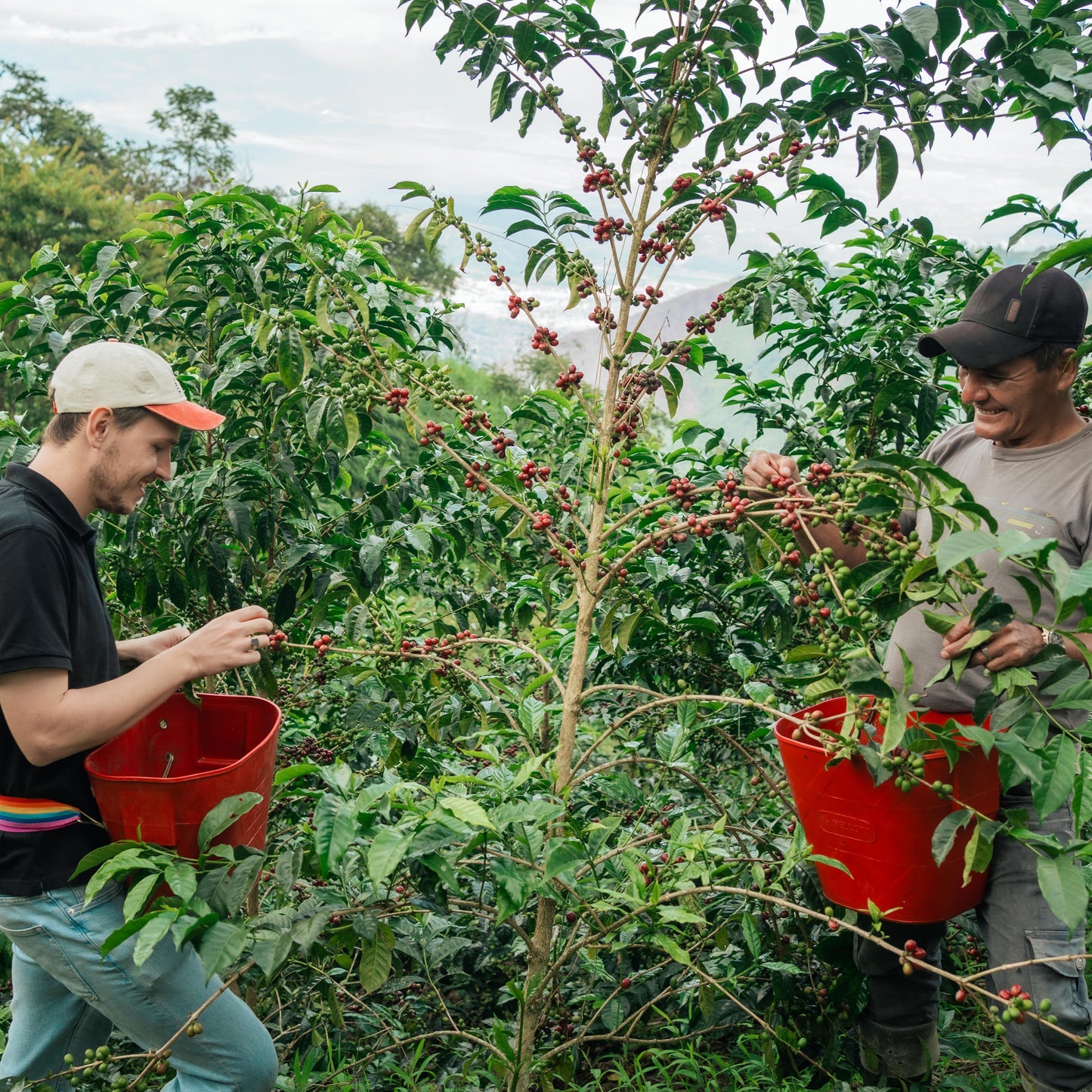Williams & Johnson Coffee Co.
Simon Brown, Las Etiopes Gesha, Peru | FILTER
Simon Brown, Las Etiopes Gesha, Peru | FILTER
Couldn't load pickup availability
Share
|
Tasting notes: |
jasmine, blackcurrant and lemon |
|
Origin: |
Peru. El Porvenir, Jaen, Cajamarca |
|
Processing: |
Washed Anaerobic - 128h fermentation |
|
Altitude: |
1950 - 2050 masl |
|
Varietals: |
Gesha |
|
Farm: |
Las Etiopes |
Farmer Story:
Las Etíopes is a 7ha farm situated in the village of El Porvenir in Jaén, Cajamarca. The farm sits at an altitude of 1900m and reaches 2050m at its peak, of the 6ha only two hectares are currently planted with Ethiopian heirloom varieties, gesha, wush wush and sidra. Simon bought the farm in 2019 and the first trees were planted in early 2020. Of the Ethiopian varieties there are around 5 lines, some of which are compact types and others taller and somewhat similar to bourbon or gesha. The gesha grown at the farm is made up of two different lines, one which is a gesha type from Ethiopia and the other is seed from Panamá.
Processing:
Almost all of the coffee produced at Las Etiopes is processed as washed coffee and since the first harvests at the farm Simon and the team have been refining the classic washed processing and adapting it to the different varieties grown on the farm. In this case, the gesha is fermented for a period of 128 hours, of which 12 hours is in cherry and 116 hours after pulping. This long fermentation is possible due to the cool temperature at the farm which delays the fermentation. Freshly picked coffee is first rinsed and floated in fresh, cold spring water which serves to both remove lower quality beans and also to clean the cherry and reduce it’s microbial load, which is important in the long fermentation. After floating, the coffee is then placed in small barrels where it ferments for 12 hours and once that time is up the coffee is pulped and placed back in the barrel with the juice from the cherries reserved from the first fermentation stage.
Dying:
At Las Etiopes the coffee is dried first on uncovered raised beds for 12 hours before being moved to a covered drying tent where it dries slowly for a period of 15 to 18 days, depending on the weather conditions.






